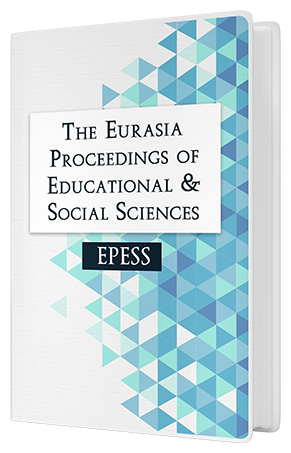The Effect of Science and Technology on Social Change According to the Views of Social Studies Prospective Teachers
Keywords:
Social studies prospective teachers, Science, Social changeAbstract
This study aimed to analyze the effect of science and technology on social change according to the views of social studies prospective teachers. The research was designed in accordance with the phenomenology pattern, which is one of the qualitative research designs. The research participants were determined according to the criterion sampling, one of the purposeful sampling methods. The research participants consisted of 48 students who received the science, technology, and society course in the social studies teaching undergraduate program. The research data were collected by employing the interview method. Interviews were conducted with the participants via a semi-structured interview form. Expert opinions were obtained in creating the semi-structured interview form. As a result of the expert opinions, the interview form consisted of five questions. The data obtained in the research were analyzed by the content analysis technique. It was concluded that for the question of what science is, participants mostly responded that it is technology, experiment, observation, invention, generating ideas, finding solutions. For the question of what technology is, the research participants mostly replied that it is innovation, modernity, convenience, development, and humans being superior to nature. For the question of what the positive effects of science and technology on social change might be, the participants mostly gave the answer that it contributed to many areas such as the development of communication, facilitating life, contributing to the development of society, modernization, easier access to information, Internet, education, transportation, and medicine.Downloads
Published
Issue
Section
License
Copyright (c) 2020 The Eurasia Proceedings of Educational and Social Sciences

This work is licensed under a Creative Commons Attribution-NonCommercial-ShareAlike 4.0 International License.
The articles may be used for research, teaching, and private study purposes. Any substantial or systematic reproduction, redistribution, reselling, loan, sub-licensing, systematic supply, or distribution in any form to anyone is expressly forbidden. Authors alone are responsible for the contents of their articles. The journal owns the copyright of the articles. The publisher shall not be liable for any loss, actions, claims, proceedings, demand, or costs or damages whatsoever or howsoever caused arising directly or indirectly in connection with or arising out of the use of the research material. All authors are requested to disclose any actual or potential conflict of interest including any financial, personal or other relationships with other people or organizations regarding the submitted work.




